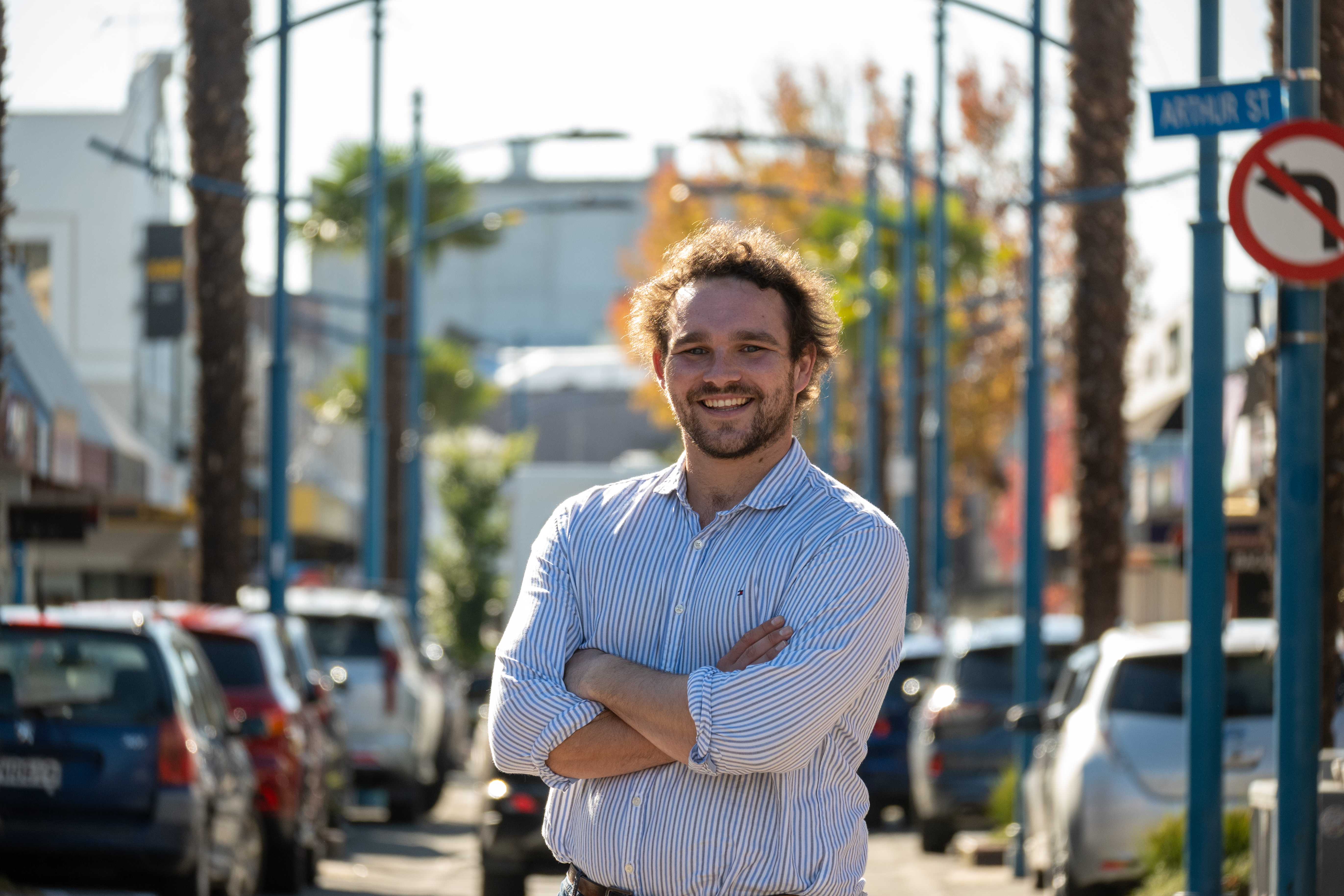Community garden returns to its roots

Philip Sim and Bronte on the future Picton Community Market Garden site. Photo: William Woodworth.
The plot of land at the end of Rānui and Huia Streets in Waikawa was once a thriving market garden.
Māori potatoes and strawberries once grew in abundance, chickens wandered freely, and workers tended to the crops and crafts.
For Philip Sim, plans to turn the land once tended by his family into the Waitohi Picton Community Garden is fitting.
“It’s almost like this land is doing a full circle.
“My grandfather John Nimmo was a well-known market gardener and farmer, growing fruit and vegetables to supply local whanau and whaling stations in the Sounds.
“He first married Heni Keepa, then my grandmother Oriana Te Ratuku, and learned Te Reo and developed this area into a market garden, thanks to finding a freshwater spring on the hillside.”
The original garden featured fruit trees, strawberries and free-range chickens which supplied food and work to the local community. Kete baskets were also made to trade in Blenheim.

“It must have been quite a bit of effort to develop, set up and trade, because we are talking dirt tracks and a few acres of gardens,” Philip explains.
The community garden signed a lease with Marlborough District Council in March.
Work is set to start soon on putting a water connection in, a car park and a fence.
After John passed away, much of the land between Rānui and Huia Streets was sold by the family.
But the family connection to the soil remains, with Philip’s mother Olive being baptised in the stream which runs along the property’s edge.
Her afterbirth is buried beside a large protected kānuka tree that now stands nearby on private property.
The plans for the new community market garden include an olive grove - a request in honour of Philip’s mother – to tie into the historical links of the land.
Philip hopes the new market gardeners both find the soil to be as productive as his ancestors did, and that the community aspect of the garden remains key.
“I'm really pleased that it's going ahead.

“This is a community garden about people connecting back to the nature, because people today don't have that garden right in their backyard.
It provides an education opportunity for the tamariki, so it's a win for everyone.”
